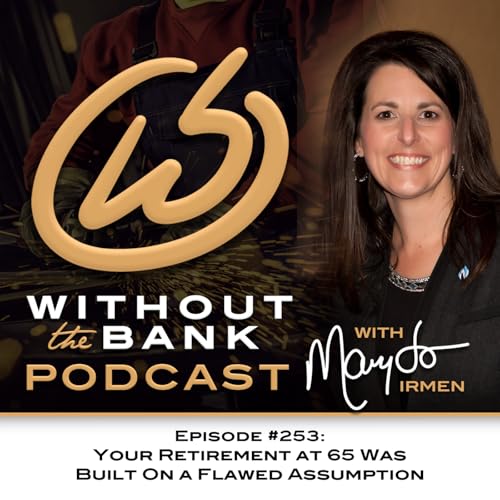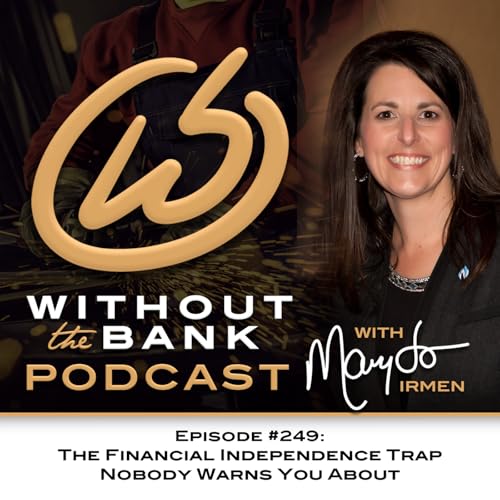Most people are taught to buy term insurance and invest the rest—but what if that advice is based on a massive misunderstanding of how life insurance actually works?
In this episode, we break down why dividend-paying whole life insurance is fundamentally misclassified, how insurance companies really make money, and why Nelson Nash believed banking, not investing, was the missing piece.
In WTB Episode 253, we continue our deep dive into Becoming Your Own Banker by Nelson Nash, focusing on mortality tables, underwriting, modified endowment contracts (MECs), and why whole life insurance behaves more like a banking system than an insurance product.
We explore:
Why term insurance is incredibly profitable for insurance companies
How underwriting selects for people who actually live longer
Why retirement at 65 was built on a flawed assumption
How MEC rules really work (and why they're not the end of the world)
Why universal life, variable life, and indexed UL fail long-term
How to properly structure a whole life policy for Infinite Banking
If you've ever been told "whole life is bad," this episode explains where that belief came from—and why it persists.
Key Takeaways:
Death is not an if—it's a when, and insurance should be structured accordingly
Term insurance is statistically designed not to pay out
Responsible, underwritten individuals live longer—and insurers know it
Whole life insurance is misclassified, leading to bad financial decisions
Infinite Banking works best when cash value is prioritized over death benefit
MEC policies aren't catastrophic—but understanding the rules matters
Chapters:
(00:00) – Why the insurance industry misunderstands its own products
(05:50) – Mortality tables, underwriting, and who actually lives longer
(10:52) – Retirement at 65 and the Social Security fallacy
(18:03) – MEC rules, overfunding, and policy design explained
(31:27) – Why universal, variable, and indexed life insurance fail
(39:21) – Why Infinite Banking is caught, not taught
📘 Haven't read Becoming Your Own Banker yet? Start there.
📅 Want help structuring a policy correctly? Schedule a conversation with our team.
💬 Drop your questions or comments below—we read and respond.
Links Mentioned:
Becoming Your Own Banker by Nelson Nash
https://www.withoutthebank.com/shop...
Schedule an appointment / Learn more (check your email for the schedule link after you buy the book)
 26 min
26 min 36 min
36 min 15 min
15 min 17 min
17 min 27 min
27 min 28 min
28 min Dec 18 202520 min
Dec 18 202520 min 41 min
41 min
